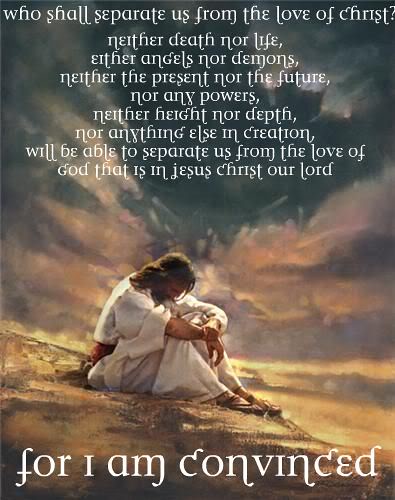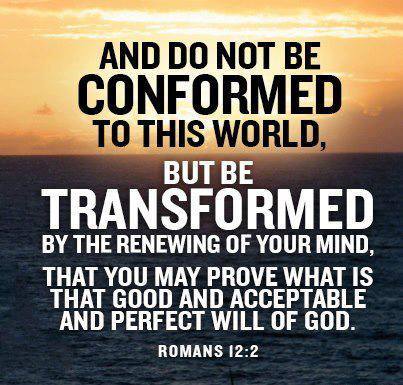EMBEDDED VIDEO SERMON in HD – NOTES
God the Holy Spirit has protected us from self-destruction.
God the Holy Spirit has protected us from self-destruction.
Please join us as we fellowship in the Word of God, listen to
Christian Music, Pray in Christ’s Name, and Praise the Lord
in our Hearts and Minds.
ALL ARE WELCOME
Hymn #1
Hymn #2
Preparing yourself for the study of God’s Word
Before we begin, if you are a believer in the Lord Jesus Christ (that is— you have trusted in Him for eternal life), it is important to prepare yourself to take-in God’s Word or participating in a Communion Service, so take a moment to name, cite or acknowledge your sins privately directly to God the Father. This will assure that you are in fellowship with God the Father and the Holy Spirit’s convicting ministry, also called the convincing ministry will then be able to teach you as the Holy Spirit is the real teacher and the pastor’s message is the vehicle the Holy Spirit uses to convince you what you are learning is true or not.
1 John 1:9, says—“If we confess [simply name, cite or acknowledge to God the Father] our sins [known sins], He is faithful and just to forgive us our sins [known sins] and to cleanse us from all unrighteousness [all unknown and forgotten sins];” NKJV (New King James Version); we call this REBOUND, read the full doctrine as to “why” we need to use 1 John 1:9 to grow spiritually. REBOUND
If you have never personally believed in the Lord Jesus Christ as your Savior (that is, believed in Him for eternal life), the issue for you is not to name your sins to God; the issue for you is to believe by faith alone in Jesus Christ alone for eternal life and you will be saved the very second you believe in Him:
John 6:47 says: “Most assuredly, I say to you, he who believes in Me [Jesus Christ] has everlasting life.” NKJV
Notice again what John 6:47 says, “he who believes in Me [Jesus Christ] has everlasting life.” It doesn’t say, “will have”; it says, “has.” Therefore, the very moment you believe Jesus Christ’s promise of everlasting life, you have it (it’s really just that simple), and it can never be lost or taken away from you (John 10:28-29). Furthermore, the gift of everlasting life (also called eternal life in scripture) is available to every human being; there are absolutely no exceptions.
John 3:14-18 says: “And as Moses lifted up the serpent in the wilderness, even so must the Son of Man be lifted up, that whoever believes in Him should not perish but have eternal life. For God so loved the world that He gave His only begotten Son, that whoever believes in Him should not perish but have everlasting life. For God did not send His Son into the world to condemn the world, but that the world through Him might be saved. He who believes in Him is not condemned; but he who does not believe is condemned already, because he has not believed in the name of the only begotten Son of God.” NKJV
Let us now bow our hearts and take a moment to prepare for learning God’s Word, if there is any known sin in your life, this is the time to just cite it privately to God the Father with your thoughts directed towards Him. With your head bowed and your eyes closed, you have total privacy in your mind and soul:
Our Pastor-Teacher is:
This ministry is non-denominational and is dedicated to
teaching the Word of God from the original languages and
making it available at no charge throughout the world.
teaching the Word of God from the original languages and
making it available at no charge throughout the world.
Sermon
NOTES
Unlike the bible study, these notes are not just for reading without watching the video. These notes are more designed to follow along during the sermon and to bring up the “hover pop-up scripture references” (some websites may require to left click the link, if that doesn’t work then look them up in your Bible) when the Pastor asks everyone to turn to that passage in their bibles.
Sermon: God the Holy Spirit has protected us from self-destruction.
There is a subtle distraction to the communication of Bible doctrine as the number one priority in the believer’s life by what has been called the “Beyond Doctrine Movement.”
What should be done after a person believes on the Lord Jesus Christ and is ready to answer such questions as: After salvation, what?
We need to beware of not becoming like a Pharisee and then to try and legislate B.D. [bible doctrine] so much that we lose the life that God’s word and promises given to us as the recipients of grace and truth.
1Co 8:1 Now concerning things sacrificed to idols, we know that we all have knowledge. Knowledge makes arrogant, but love edifies.
In 1Co 8:1-6, we have a reference to a major problem that was apparent in the Churches at Corinth = the danger of having a little knowledge in the Christian life and thinking that you have a lot.
There is nothing wrong with having a little knowledge providing that you have the ability to control it rather than having “IT” control your life.
At first, it must have seemed to the disciples that they had no advantage over everyone else—and that our Lord would die and leave them alone.
The Jewish leaders who had been told they could not go where our Lord was going, were also not able to know that the disciples would be able to be with Jesus no matter where they would be later on.
Because of our Lord Jesus Christ we would return to God the Father, God the Holy Spirit, which would be made available, allowing every believer constant access to the Father and the Son.
This is another reason for all of us to trust and obey the Lord Jesus Christ because obedience to God comes from your love and trust toward our Lord and Savior.
We know that because God the Holy Spirit has protected us from self-destruction.
This is a sobering way of stating what our Lord said and it is also a direct reflection of our love for our Lord.
John 14:21 “He who has My commandments and keeps them, he it is who loves Me; and he who loves Me shall be loved by My Father, and I will love him, and will disclose Myself to him.”
John 14:21 “He who has My commandments and keeps them is he who loves Me shall be loved by My Father, and I will love him, and [“we”] will disclose or reveal ourselves to Him.
The coming days would bring horrifying, then glorious, events, but our Lord would not be able to talk to His disciples during those times.
Before the disciples could understand any more, our Lord Jesus’ death and resurrection would have to take place.
The disciples’ understanding would be heightened by the coming of God the Holy Spirit, their true mentor.”
Notice that the Counselor, the Holy Spirit, would be sent as a representative of the Royal Family of God.
Not only is God the Holy Spirit a Counselor and a representative of the Royal Family of God, but He is also the one who created us to be Royal Ambassadors.
The Holy Spirit would continue our Lord’s teaching ministry by preparing us to be our Lord’s Bride of the future.
This is a part of the ministry of the Holy Spirit preparing the bride of Christ for her husband, the Lord Jesus Christ.
Eph 5:14, the Word of God and the Spirit of God working together to make our Lord’s spiritual body a temple for the Bride and the Bridegroom.
Eph 5:14 “For this reason it ( It = a reference to Isa 51:17; 52:1; 60:1) says, “Awake, sleeper, And arise from the dead, And Christ will shine on you.”
If you are ignorant of doctrine how do you handle a problem which requires the doctrine you don’t have?
What source do you have for solving the problem?
If you start to operate on human viewpoint with regard to food offered to idols, or anything else, you’ve had it.
Instead of resolving the problem on the basis of Bible doctrine he resolves the problem on the basis of human prejudice.
Most of you by now recognize that Bible doctrine must be taught based on three major and basic principles.
The one we seem to use the most is the original language of the Hebrew and the Greek.
We need to be open and available to what God the Holy Spirit is saying to us.
1. Isagogics = Historical Setting
2. Categories = Systematic Theology
3. Exegesis = Original languages.
The richness of the passage that is set before us is found in the Greek noun nekros — which is correctly translated “death” but the issue is what kind of death is the Holy Spirit revealing to us?
Eph 5:14 “For this reason it (It is a reference to Isa 51:17; 52:1; 60:1) says, “Awake, sleeper, And arise from the dead, And Christ will shine on you.”
Key Word = the Greek noun nekros, and here is where the original language of nekros is in view because the word nekros is in the plural and it is really an adjective translated as a noun.
Eph 5:14 “For this reason it (O.T. = Old Testament) says, “Awake, sleeper [a command for believers to be on the alert and wake up from their slothfulness or sleeping ,
“And arise from the (other) dead ones (nekros = in the plural and is correctly translated = Arise from the other dead ones,
Or Arise from those believers who are also sleeping spiritually and looking for others to join them in their slothfulness and laziness.
We should arise from the other dead ones in last part of the verse which says “And Christ will shine on you.”
The challenge to produce divine good and Christian service which is acceptable to God is found in the vine and the branch metaphor of John 15:1-8.
Throughout this passage the apostle John uses the vine, the vinedresser and the branches as a metaphor to represent the relationship of the believer with the Lord Jesus Christ.
A metaphor is a figure of speech in which one thing is likened to another.
Here we have the vine and the branches used as a metaphor to represent the unity between the Lord Jesus Christ and the Church-age believer.
The vinedresser metaphor refers to God the Father as the author of the Predesigned Plan of God.
The vine metaphor refers to the humanity of Jesus during the dispensation of the Hypostatic Union.
Fruit through the branch is a symbol of the Church-age believer.
And the obvious principle; No fruit or production can be any better than the vine which produces it.
The vine metaphor emphasizes the fact that all precedence and all production of divine good in the Church-age comes from the vine – our Lord Jesus.
The branch is a metaphor for the Church-age believer.
“dead branches” representing dead works, or production skills minus Spiritual skills.
“Live branches” representing divine good, or Spiritual skills as the basis for production skills.
The branch that does not bear fruit refers to the believer who does not produce divine good.
Dead works is not fruit-bearing and is punishable or subject to divine discipline.
Verses 2 = God the Father removes and takes away all dead wood, dead branches, branches which produce dead works.
God the Father takes away or removes the dead works through disciplinary suffering in two categories: the law of volitional responsibility which produces a tremendous amount of self-induced misery and divine discipline.
Matt 7:17 “Every healthy tree produces good fruit. And every diseased tree produces worthless [degenerate, or evil] fruit.
Matt 7:18 A good tree cannot produce bad fruit, nor can a rotten tree produce good fruit.
Matt 7:19 every tree that does not bear good fruit is cut down and thrown into the fire.”
1. The law of volitional responsibility which produces a tremendous amount of self-induced misery and divine discipline.
2. We also have the principle of pruning which is necessary to redistribute where the energy for divine production should go.
The branch that does bear fruit has to be pruned occasionally so that the Spiritual skills will increase and maximize.
Principle: Just as God provides divine discipline and punitive action for the non-fruit bearer, so God provides suffering for blessing for the fruit-bearer.
Verses 3-4 are the cleansing of the branches for production.
Verse three is salvation cleansing of the branches.
Nothing in your life before salvation should be a hindrance to your production of divine good.
John 15:4, verse four refers to post-salvation cleansing of the branches, which is in 1Jo 1:9.
The fact that “abide” is a command means that it is an experience after salvation and not a reference to positional sanctification.
We are never commanded to be in Union with Christ and this is a command to remain in fellowship with God through the use of 1Jo 1:9, so that divine good can be produced.
The branch in of John 15:2 is positional sanctification, but the branch commanded to abide in verses 4, is the believer mandated to experiential sanctification through the filling of the Holy Spirit.
“i in you” is the command for the believer to learn and metabolize Bible doctrine.
The vine has provided for us the precedent, the pattern, and the information necessary to produce divine good.
Spiritual skills = the filling of the Spirit;
Perception, metabolization, and application of doctrine;
And execution of the Predesigned Plan of God.
Our Lord had Spiritual skills for thirty years before he had three years of production in His ministry.
Abiding in this verse is a reference to the filling of the Spirit.
“in us” is cognition of Bible doctrine or having his mind alive in us.
These Spiritual skills are required before we can produce “much fruit.”
The phrase “do nothing” is dead works, or the function of production skills without Spiritual skills.
Principle – The production of divine good is a grace provision from God which meets God’s perfect standards.
God provides the means for fruit-bearing through the filling of the Holy Spirit, understanding of Bible doctrine, and through the attainment of Spiritual growth.
Hymn #3
The following link is to a good-news message describing how one can receive eternal life:
Ticket to Heaven, it was written for anyone not absolutely certain about of their eternal future.



No comments:
Post a Comment